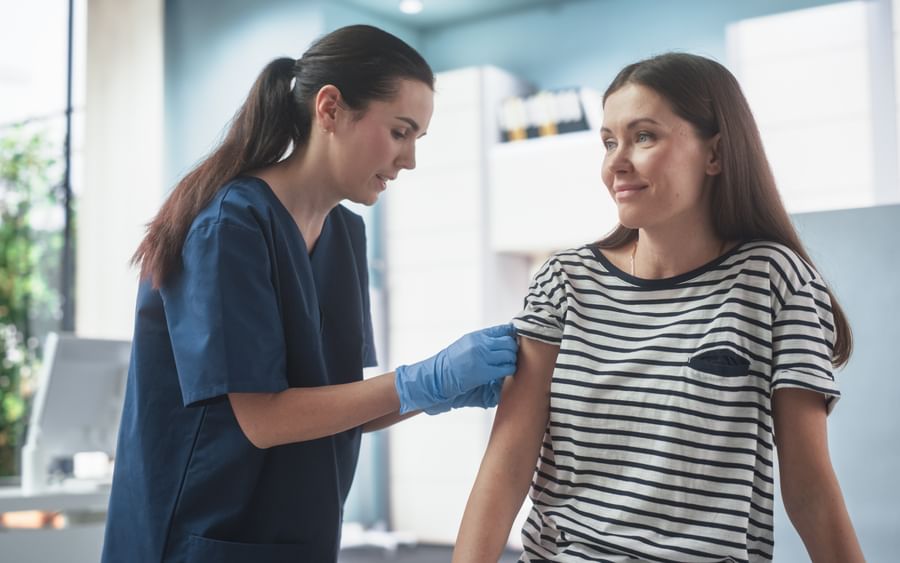What is HPV?
HPV is a common sexually transmitted infection that usually shows no symptoms. It is passed on by genital skin-to-skin contact during sexual activity and spreads through tiny breaks in the skin (not by blood, semen or saliva). It can infect people of all genders and sexualities.
There are more than 100 different types of HPV, including over 40 types that can infect the genitals. Anyone who has ever had sexual contact could get HPV – it is so common that about 4 out of 5 people will become infected with at least one type of genital HPV at some point in their lifetime.
How does HPV cause cancer?
In most people diagnosed with HPV, the virus clears up naturally in one to two years and no treatment is needed. If the infection doesn’t go away, there’s an increased risk of developing changes in the cervix that, if left untreated, can become cervical cancer.
These changes usually develop slowly over many years, generally taking about 10 to 15 years to cause cell changes that may develop into cervical cancer.
Finding HPV early means you can find these changes in the body long before cancer develops – treatment for these changes is very effective in preventing most cases of cervical cancer. That’s why cervical cancer screening is so important.
In addition to cervical cancer, HPV can cause some other cancers, including:
- anal cancer
- vaginal cancer
- vulvar cancer
- penile cancer
- oropharyngeal cancers (cancers of the back of the throat, including the base of the tongue and tonsils).
Vaccinating against HPV
The HPV vaccine protects you against seven high-risk types of HPV that are responsible for about nine out of 10 cervical cancers, other HPV-related cancers and genital warts.
Research shows that Australia is on track to eliminate cervical cancer as a public health issue by 2035 through a combination of the HPV vaccination and screening.
By getting vaccinated against HPV and participating in regular screening, you're not only protecting yourself and others – you're also helping Australia stay on track to eliminate cervical cancer as a public health issue by 2035.
Who should get the HPV vaccine?
All children aged 12-13 years are recommended to have the HPV vaccine. The vaccine is most effective at this stage before sexual activity has commenced and when the body produces more antibodies. The vaccine is provided to students of this age for free through school as part of the National Immunisation Program.
If you missed out on getting the HPV vaccination at school, you can catch up on your immunisation by seeing your local doctor or pharmacy. It’s recommended to have the vaccination before you become sexually active and before aged 26.
Older people may also benefit from the HPV vaccine, particularly those at a higher risk of developing HPV-related diseases, such as:
- people living with HIV
- significantly immunocompromised groups
- men who have sex with men.
If you are aged 26 or older and aren’t vaccinated , ask your doctor if you may benefit from having the vaccine.
Do I still need to do the cervical screening test if I’ve had the HPV vaccine?
Yes. Whilst the vaccination can help significantly reduce the risk of cervical cancer, the HPV vaccine does not protect against all types of HPV.
The cervical screening test looks for early signs of HPV long before cancer develops and could save your life.
Anyone with a cervix, aged 25 to 74 years still need to get their cervical screening test every five years, even if they’ve had the HPV vaccine.
Get support
If you have been diagnosed with HPV and are worried about your cancer risk, you can speak to one of Cancer Council SA’s qualified health professionals on 13 11 20.


